The agricultural sector is one of the largest employment sectors globally and holds massive significance for economies and livelihoods all over the world. This sector relies very heavily on the participation of women for its growth, especially in developing countries. However, surveys and research in the food and agriculture sector, since 2010, have flagged that gender inequality prevails in these sectors. Moreover, the findings indicate that not only is it principally justified to close gaps between men and women in the agricultural sector, but it is also of practical benefit since it would help improve universal conditions of hunger and poverty.
In 2023, these findings have been taken to the next level by the Food and Agriculture Organisation in a report that aimed to systematically trace the complex status of women in agrifood systems. This report expands the purview of consideration beyond agriculture to include agrifood systems which incorporate non-agricultural but affiliated fields of work such as transportation, distribution, storage, processing, disposal and much more.
In 2023, these findings have been taken to the next level by the Food and Agriculture Organisation in a report that aimed to systematically trace the complex status of women in agrifood systems. This report expands the purview of consideration beyond agriculture to include agrifood systems which incorporate non-agricultural but affiliated fields of work such as transportation, distribution, storage, processing, disposal and much more. Essentially, the report comprehensively tracks the industry-wide participation of women, the gaps they face, its sources and the impact it has on the food and agriculture sector as a whole.
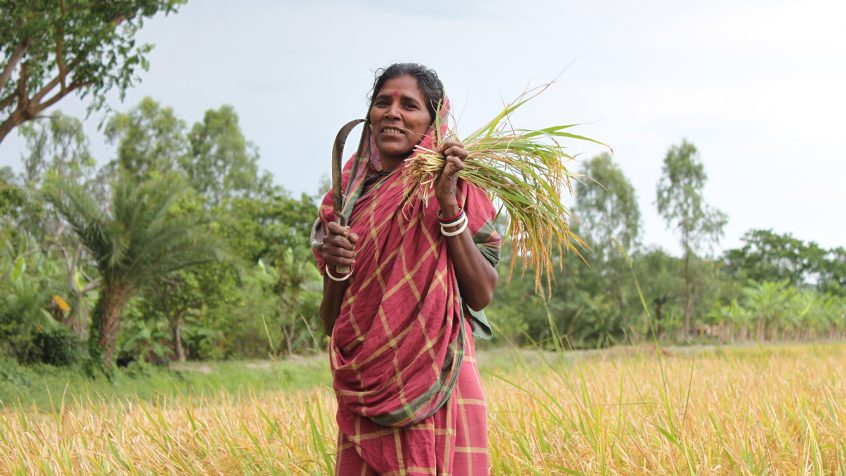
The findings reveal that women have a greater role in agrifood systems with comparatively lower access to education, basic infrastructure, wages and non-farm opportunities with respect to men in the field. Further, gender-sensitive policy changes are likely to reduce global food insecurity by 45 million and boost the global economy by $1 trillion. The empowerment of women in such a crucial sector of our economy will decisively help in building human capital. The report makes a strong case for gender transformative approaches to produce qualitatively better interventions for food security, nutrition, employment and gender development.
Globally, 36% of all working women are associated with agrifood systems alongside 38% of the total working men in the field. In specific regions such as Sub-Saharan Africa, and Southeast Asia, women are the overwhelming majority working in agrifood systems. However, despite their dominance in the field, women continue to work in unfavourable conditions.
Lastly, the report gives an idea of the interventions that have worked in the past to mitigate social and economic costs faced by women and the ways in which women can be empowered to produce sustainable and resilient agrifood systems. It also points out that fewer women are part of the discourse related to agricultural policy-making and thus, the interests of women are underrepresented in all governance bodies.
Gendered constraints faced by women
Globally, 36% of all working women are associated with agrifood systems alongside 38% of the total working men in the field. In specific regions such as Sub-Saharan Africa, and Southeast Asia, women are the overwhelming majority working in agrifood systems. However, despite their dominance in the field, women continue to work in unfavourable conditions.
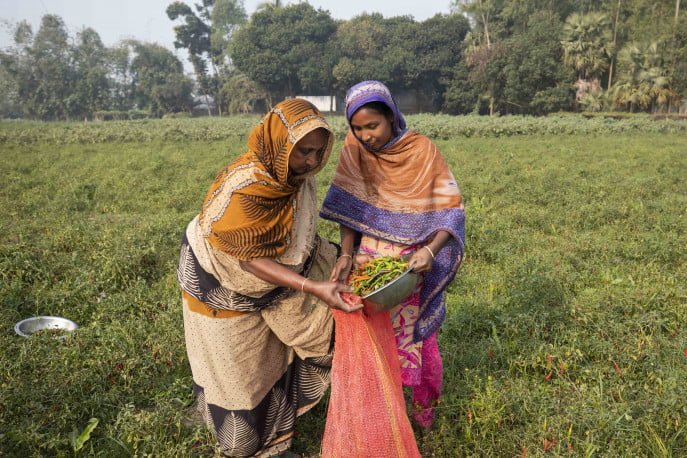
For instance, women are the major contributors to agriculture in places where there is lower job mobility and a lack of alternative employment options for women. Global shocks such as Covid-19 or changing climate conditions have a greater impact on women farmers due to low adaptability. Land productivity in female-managed farms is 24% lower than in male-managed farms. Entrepreneurship and independent farming options are low for women who more often engage in farming less lucrative crops.
Also Read: Feminisation Of Agriculture: Women In Farming Must Be Backed By Legal And Social Infrastructure
In fact, the contributions of women remain unpaid and informal because they are casual workers on family land. Similarly, beyond primary agricultural production, women are engaged in jobs in the agrifood system which are lower in the value chain and have worse working conditions. The double jeopardy that women face is best highlighted through the unpaid and unrecognised domestic and care work they participate in which is not even considered in labour-market participation surveys.
The report identifies several reasons for these inequalities. The reasons for the same have been pinned down to limited material access, gendered norms and low adaptability to contingencies.
Firstly, women have lower access to assets, services and resources such as land, labour, finance options, digital technology and primary inputs. Land security and ownership among women are much lower than that of men because women’s land rights are not protected to ensure secure ownership for a tenure. Similarly, access to facilities for irrigation and livestock ownership is limited for women which affects their ability to build sustainable agricultural harvests. Land productivity is also subsequently impacted because of a lack of access to fertilizers, high-productivity seeds and technology. Patrimonial transfer of land and infrastructure coupled with agricultural financial networks that are exclusionary contribute to structural inequalities that women face.
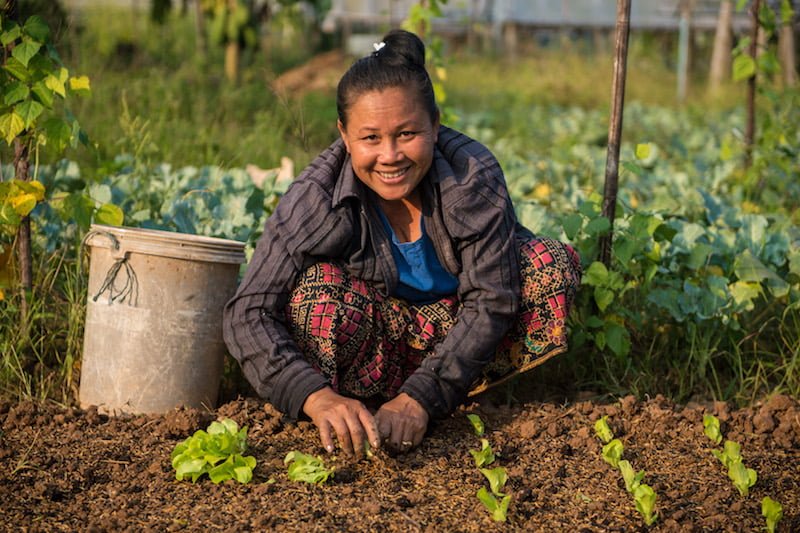
Secondly, gendered norms limit the agency that women have in choosing the jobs they can opt into and are paid for. Discriminatory work divisions have forced women into unpaid domestic labour. Their mobility into market activities and control over financial resources and assets is significantly reduced. Policy interventions in the agro-food industry would thus need to also address discriminatory gender norms to mitigate problems in the industry.
Also Read: The Unsustainable Practice Of Animal Agriculture And What Individuals Can Do To Help
Lastly, the responses to crisis are also gendered in many ways which add to the inequalities. Resource constraints, as mentioned above, make women more vulnerable to crises like the coronavirus, natural disasters or climatic changes. Access to climate information and agricultural education is also reduced among women.
Inequities in the agriculture industry reproduce further inequities in the consumption sector. Food insecurity and poverty among women increase when their harvests fail. Covid-19 and other such contingencies exacerbate already existing gaps and result in grave consequences for women’s health, nutrition, neo-natal care and disease vulnerability.
The road ahead
Given the large presence of women in agri-food systems and systemic inequalities that contribute to universal problems of hunger and poverty, gender-sensitive policy interventions have been suggested. Such a targeted approach has been called ‘cost-effective’ and is said to have high returns.
Changes suggested include reforms on land legislation, ownership rights, increased awareness of legal recourse and awareness programs. Digital tools for awareness and information have proven to be effective and accessible, even at the rural level.
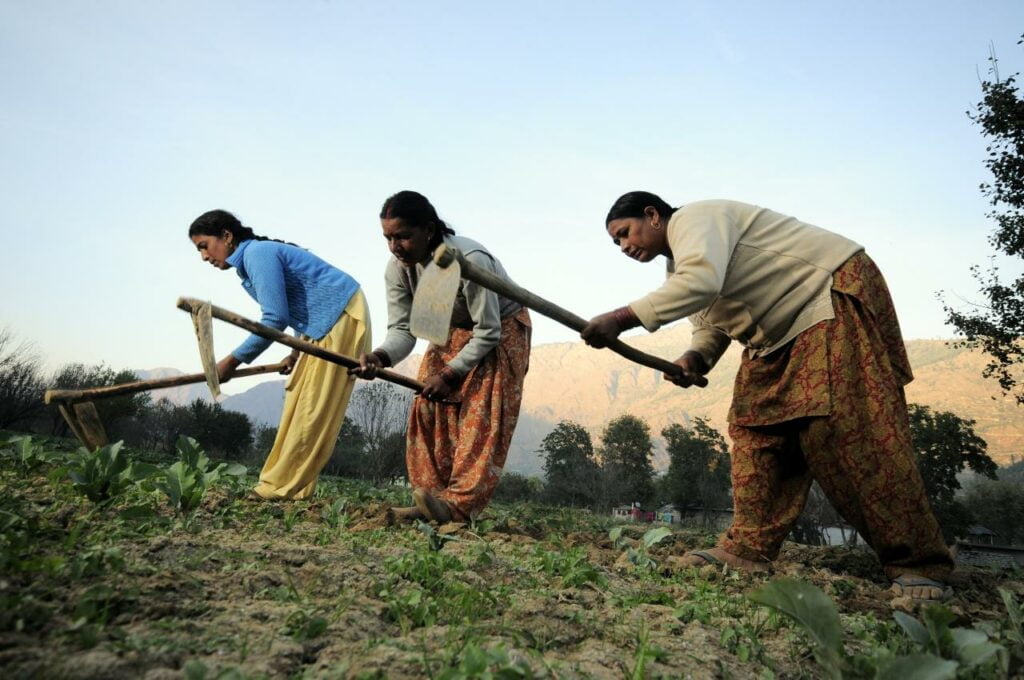
Aid for women at the familial level in the form of child-care, capacity-building programs, education and training also projected benefits for women with low mobility and less opportunity, especially on the rural front. In this regard, social security schemes for women are imperative since they ensure socio-economic protection.
The report indicates that if these interventions percolated down to the level of small-scale producers, it would raise the incomes of an additional 58 million people and increase agricultural resilience by an additional 235 million people.
The director-general of FAO, Qu Dongyu stated in the forward section of the report that, “Efficient, inclusive, resilient and sustainable agrifood systems depend on the empowerment of all women and gender equality. Women have always worked in agrifood systems. It is time that we made agrifood systems work for women. We encourage all stakeholders to make a commitment to join us in increasing equality.”
The director-general of FAO, Qu Dongyu stated in the forward section of the report that, “Efficient, inclusive, resilient and sustainable agrifood systems depend on the empowerment of all women and gender equality. Women have always worked in agrifood systems. It is time that we made agrifood systems work for women. We encourage all stakeholders to make a commitment to join us in increasing equality.”
The role of localised changes in policy, institutions, and social norms has been underscored in the report as being as important as changes in national policy frameworks to ensure equality of opportunity. Furthermore, the report highlights that there is a need to collect data at the intersections of other forms of socio-economic differentiation, age and other factors to adopt a more intersectional approach to policy making.
Also Read: Women Contribute Hugely In Agriculture, But Are Still Overlooked As ‘Farmers’
FAO’s report holds significant importance in the current framework of decision-making because it provides avenues for focused, community-based and comprehensive intervention for a prominent industry in the global sphere. A first of its kind since 2011, the report provides us with the basis to reconceptualise current paradigms of policy making.
About the author(s)
Sakshi (she/they) is a student pursuing History at St. Stephen's College, Delhi University. They are interested in issues of gender, sexuality, education and culture. They love game nights, a good film and a sleeping in.
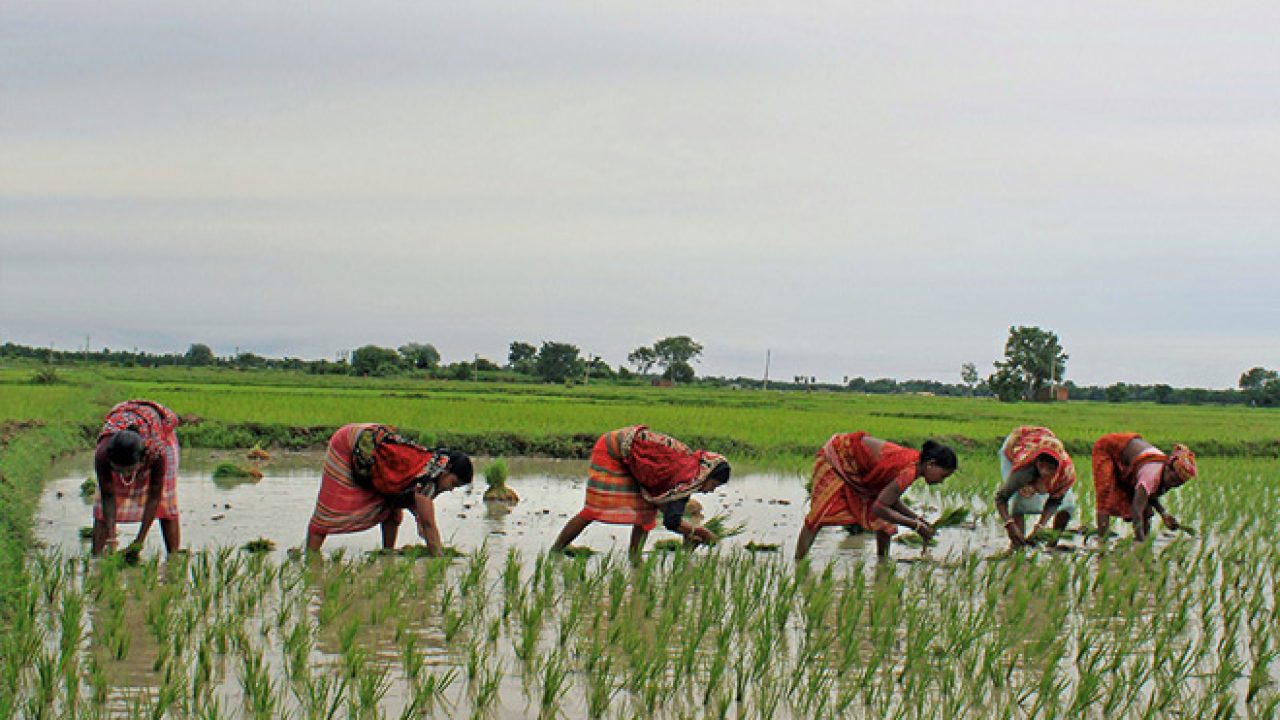





Very well written